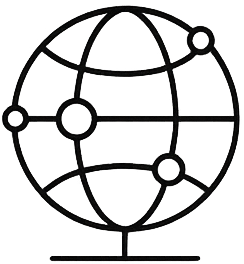
Adding more years to your life
and more life to your years
N1X10 offers the world’s most advanced personalized oncology advocacy service for cancer patients. We educate you and empower you to overcome the limitations of standard care. Our global network connects you to cancer professionals offering their services powered by our proprietary technology and methodology.





Adding more years to your life
and more life to your years
.png)
Dedicated Advocacy Team
Each patient is paired with a dedicated certified oncologist and physician assistant, as well as an administrative and technology team, all to support your advocacy process.

A Single View of All Your Data
Our specially developed proprietary technology allows patients and caregivers to have a comprehensive dashboard with all health related data, accessible from anywhere, anytime.
.png)
Dedicated Advocacy Team
Each patient is paired with a dedicated certified oncologist and physician assistant, as well as an administrative and technology team, all to support your advocacy process.
.png)
Dedicated Advocacy Team
Each patient is paired with a dedicated certified oncologist and physician assistant, as well as an administrative and technology team, all to support your advocacy process.

Global Experts Network
Our Network provides access to a broad set of trials and treatments beyond the current standard protocols, providing you with additional treatment options.
.png)
A Single View of All Your Data
Our specially developed proprietary technology allows patients and caregivers to have a comprehensive dashboard with all health related data, accessible from anywhere, anytime.
Innovative Patient Care
What Sets Us Apart

Precision Medicine
Up to date, tailored treatment
.png)
Personalized Medicine
Accounting for all of your specific needs
.png)
Proven Track Record
Assisting cancer patients for years

Dedicated Team
Guiding you every step of the way

Data Management
Centralized facilitating platform
Why Choose Us
Adding more years to your life
and more life to your years
.png)
Dedicated
Advocacy Team
Each patient is paired with a dedicated certified oncologist and physician assistant, as well as an administrative and technology team, all to support your advocacy process.

Global Experts
Network
Our Network provides access to a broad set of trials and treatments beyond the current standard protocols, providing you with additional treatment options.
.png)
A Single View of
All Your Data
Our specially developed proprietary technology allows patients and caregivers to have a comprehensive dashboard with all health related data, accessible from anywhere, anytime.

A Guide for Your Cancer Journey
N1X10 is the one-stop-shop for cancer patients looking for a better experience navigating their cancer journey. Our focus on the patient’s preferences, precision medicine education, exploring options outside the system, while maintaining a comprehensive approach, sets us apart from those looking to actively fight their disease.
What Our Patients Say
N1X10 introduced me to other options for my treatment - a vaccine… Everyone has their own unique set of conditions.
- Kevin, N1X10 client, 2023
Your service was invaluable to us! We're both scientists, physicians and yet - we needed it and gained tremendous value from it. We think that for less scientific cancer patients this is a must.
- N1X10 Client, 2023
.jpeg)

Enabling Physicians to Go
Beyond Their Reach
As physicians, it is almost impossible to keep up to date with all of the latest research in every field and that is why N1X10 is here. To enable you to offer your patients the best service to help them navigate their illness. When your patients are diagnosed with cancer, we at N1X10 will work with you, to review their unique case and provide guidance and support.
What Physicians Say
Private Medical uses N1X10 for our cancer patients. Unless there are compelling reasons, its irresponsible not to have this resource available.
- Jordan Shlain, MD, 2023
I’ve been blown away at how deep of a dive (N1X10) have gone at exploring options and all the connections they have provided for additional treatments.
- Jonathan Schmidt, MD, 2023






.png)


